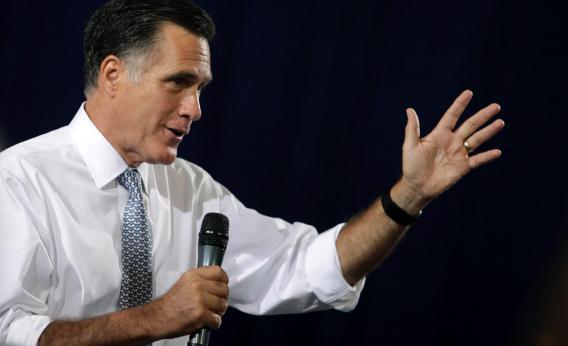Compared to what?
That is the question Rep. Barney Frank wisely suggests we ask when evaluating different pieces of legislation, or for that matter any public policy proposal. That question seems especially appropriate today, when tax issues are back on the table before Congress. House Republicans today voted down the tax proposal passed by the Senate to extend tax cuts for individuals with incomes under $200,000 and couples with incomes under $250,000, to let marginal rates on incomes above that level revert to Clinton-era levels, a boost of about 4 percent.
At the same time, we now know more about the proposal Republicans will support—the proposal from Mitt Romney—thanks to an analysis done by the Brookings Institution and the Tax Policy Center. These two eminent and reliable outfits, not ideologues of either side, conclude that the Romney plan would raise taxes by a total of $86 billion on the 95 percent of Americans with incomes below $200,000. That’s a tax increase of about $500 per household. In contrast, Romney would lower taxes for the 5 percent of Americans with incomes above $200,000 by about $86 billion. This is the Republican plan.
So now we know the answer to Barney Frank’s question: compared to what? The Republicans oppose a plan that lowers taxes for 95 percent of the population and raises taxes a small bit for those with income above $200,000, yet support a plan that lowers taxes for the top 5 percent and raises them on everybody else!
Think about the lack of logic of that. As an economic matter, they have it backward. We need desperately to drive consumption up, so the best thing to do is get funds to the middle class, whose consumption will be triggered, not to raise their taxes and give more money to the wealthiest—so-called “job creators” who clearly haven’t been creating jobs and who will most likely put the new-found cash into savings.
The choice the Republicans make is one they are free to make—if they want the increasing divide between the wealthy and the less wealthy to get even broader!
As a matter of politics—and it is not for me to give them advice on this score—polls show that the public favors the Democratic plan by about a 3-1 margin, which is one of the reasons Romney is trailing in key swing states of Pennsylvania, Ohio, and Florida.
The Republican vote today and the new analysis of the Romney plan help clarify the choice we are facing. This election isn’t about awkwardness at the Olympics or a rude press secretary: It is about economic growth and economic justice. These are the choices that matter.
